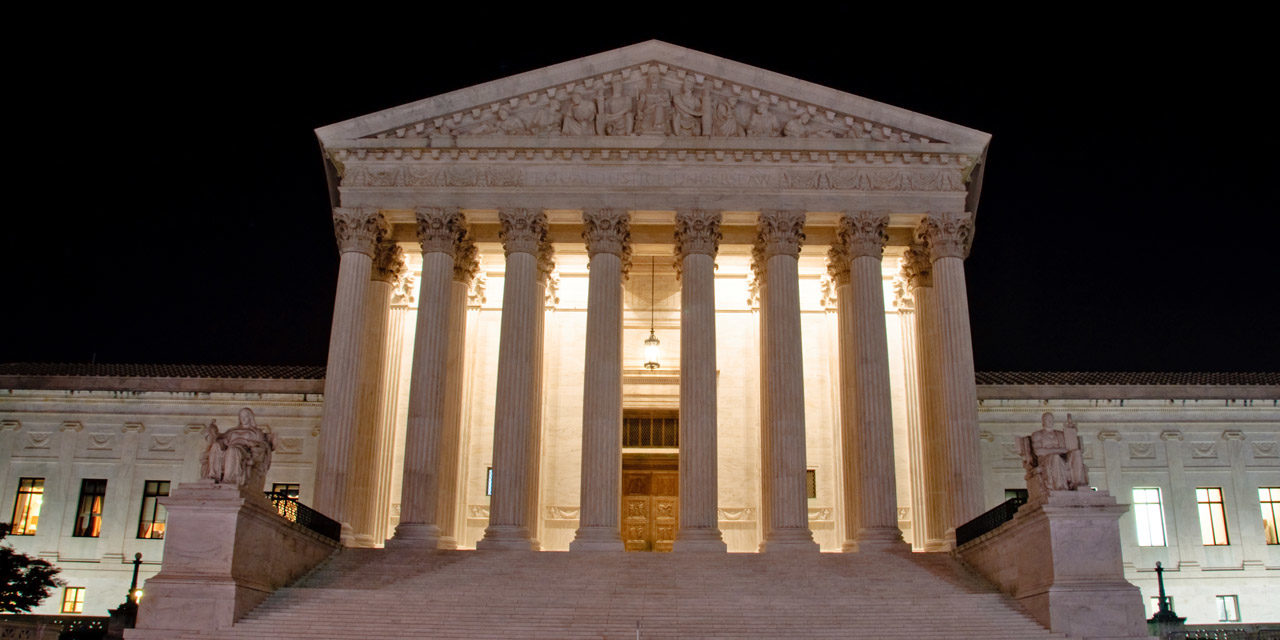It ended not with a bang, but with a whimper. The U.S. Supreme Court, in an abbreviated order today, declined the request from the state of Texas that it be allowed to bring a lawsuit against Pennsylvania, Wisconsin, Michigan and Georgia in the nation’s highest court, seeking to delay the Electoral College vote and overturn the current results in those four states.
“The State of Texas’s motion for leave to file a bill of complaint is denied for lack of standing under Article III of the Constitution. Texas has not demonstrated a judicially cognizable interest in the manner in which another State conducts its elections. All other pending motions are dismissed as moot,” the body of the order reads.
Justices Samuel Alito and Clarence Thomas would have granted the Texas request.
“In my view, we do not have discretion to deny the filing of a bill of complaint in a case that falls within our original jurisdiction,” the statement from Alito and Thomas attached to the order reads. “See Arizona v. California, 589 U. S. ___ (Feb. 24, 2020) (Thomas, J., dissenting). I would therefore grant the motion to file the bill of complaint but would not grant other relief, and I express no view on any other issue.”
The statement from Alito and Thomas doesn’t necessarily mean they believe the Texas claim had merit, just that they thought the court was obligated to hear the case.
By the time the court issued its order, Texas had attracted a number of supporters and opponents from among the nation’s state attorneys general. Dozens of states filed or signed on to amicus briefs on both sides of the case. President Donald Trump requested to be allowed to intervene and join the lawsuit as a party, as did a number of red states. Republican members of the U.S. House, 126 strong, filed their own amicus brief supporting Texas. Other interested parties submitted their own briefs.
In the end, though, the court followed the path that most constitutional law experts thought they would in this case.
Andy McCarthy, a conservative lawyer who writes for National Review, was blunt in his assessment of the lawsuit earlier this week. He wrote, “I doubt the Court will say anything other than that leave to file Texas’s complaint is denied. In the unlikely event of elaboration, the justices may convey that if Texas has a problem with the way other states administer elections, it should address that through the political process, including through Texas’s large and influential delegation of elected officials in Congress.”
The equally conservative editorial board of the Wall Street Journal noted its skepticism of the case: “[I]t would be a legal and political earthquake if the Court took the case.” The WSJ went on to look at the unforeseen consequences of allowing the suit to proceed, and observed, “But if Texas can sue on these grounds, then some unhappy state will sue another state after every close election whose outcome it doesn’t like.”
Barring any new development in any of the individual state lawsuits brought by the Trump campaign and other Republicans in various states, the Electoral College will meet on December 14 and cast their votes as anticipated, with 306 votes going to Vice President Biden, and 232 votes going to President Trump.
The Electoral College results then must be transmitted to Congress for acceptance. On January 6, the votes will be opened and read before a joint session of Congress. Federal law provides an opportunity for members of both chambers to object to any particular state’s vote or the result as a whole. The objections are debated and resolved quickly.
Assuming at that point that one candidate will have at least 270 electoral votes, a winner is declared and will be inaugurated on January 20.
Photo from Shutterstock






